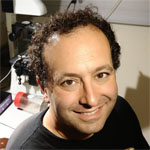Like everybody, I have a series of interests, financial and otherwise, that could be affected by things I do and opine on. I endeavor not to let these influence my actions as a scientist or commentator. But I am not naive enough to think that I can always do this, and feel it is important that people know the things that might be influencing me.
Financial:
Impossible Foods: I am an advisor to Impossible Foods, a company founded by my former postdoctoral advisor Patrick Brown, to develop plant-based alternatives to foods derived from animal projects. I got involved in the company because animal farming has a massively negative effect on the planet, and because I believe we can reduce this negative impact by offering consumers products that satisfy their desire for meat, cheese and other dairy products that have less of an impact on the environment. I spend time on the company because I believe deeply in its mission, but I also receive a stipend for my work and own equity.
Areas of biggest conflict: impact of animal farming; food policy; food biotechnology, especially GMOs, as the company uses genetic engineering in its products.
23andMe: I used to serve on the Scientific Advisory Board of 23andMe, a company that provides consumers with information on their DNA through genotyping and through a website that offers information on ancestry and ties the unique collection of DNA variants they contain to the emerging scientific literature on the effect of these mutation. I do not hold any equity in the company and am not paid by them in any way, but my long affiliation with them may constitute a conflict of interest.
Areas of biggest conflict: government regulation of personal genetics; value of personal genetic information to consumers.
Non-financial:
Public Library of Science: For 20 years I have been a public advocate for reforming the way scientist communicate, and much of my work in this domain focused on the Public Library of Science, a non-profit publisher of open-access scientific and medical journals on whose board of directors I served from 2002 – 2018. My work for PLOS was strictly on a volunteer basis: At now point did I receive any compensation from the company for my role. I did receive t-shirts and pens from PLOS that are also available to members of the public (but, honestly, I don’t like this corporate stuff and the large collection of PLOS-themed t-shirts people actually see me wearing were made and paid for personally). However, despite having no financial interest in PLOS, I have put a huge amount of blood, sweat and tears into the company. I believe fervently in its mission and have an obvious personal stake in its success, even though I am no longer affiliated with them.
Areas of biggest conflict: Open access policy; anything to do with scientific publishing.
Professional:
Science funding: As a working scientist who has received grants from a variety of government funding agencies, I have a professional interest in promoting science funding and in influencing the way research funds are distributed. Anyone who follows me knows that I speak my mind freely on the NIH and other funding agencies and their problems, but I will admit that I used to pull my punches occasionally for fear that it would influence my prospects of funding.
I currently receive virtually all of my lab’s funding from the Howard Hughes Medical Institute, and thus clearly have a professional conflict when talking about HHMI.
Institutional: I work at the University of California, Berkeley, and have an institutional conflict of interest on anything dealing with UCB, with the University of California write large, educational funding in California, and, arguably, public higher education policy at the national and state level.
I also have a conflict of interest when talking about areas where UC, UCB or my department (Molecular and Cell Biology) have a financial interest, especially on patents. This is currently most relevant in regards to the patent interference case being contested by Berkeley, MIT and others over CRISPR technology.
 I'm a biologist at UC Berkeley and an Investigator of the Howard Hughes Medical Institute. I work primarily on flies, and my research encompases evolution, development, genetics, genomics, chemical ecology and behavior. I am a strong proponent of open science, and a co-founder of the
I'm a biologist at UC Berkeley and an Investigator of the Howard Hughes Medical Institute. I work primarily on flies, and my research encompases evolution, development, genetics, genomics, chemical ecology and behavior. I am a strong proponent of open science, and a co-founder of the 